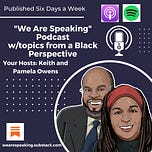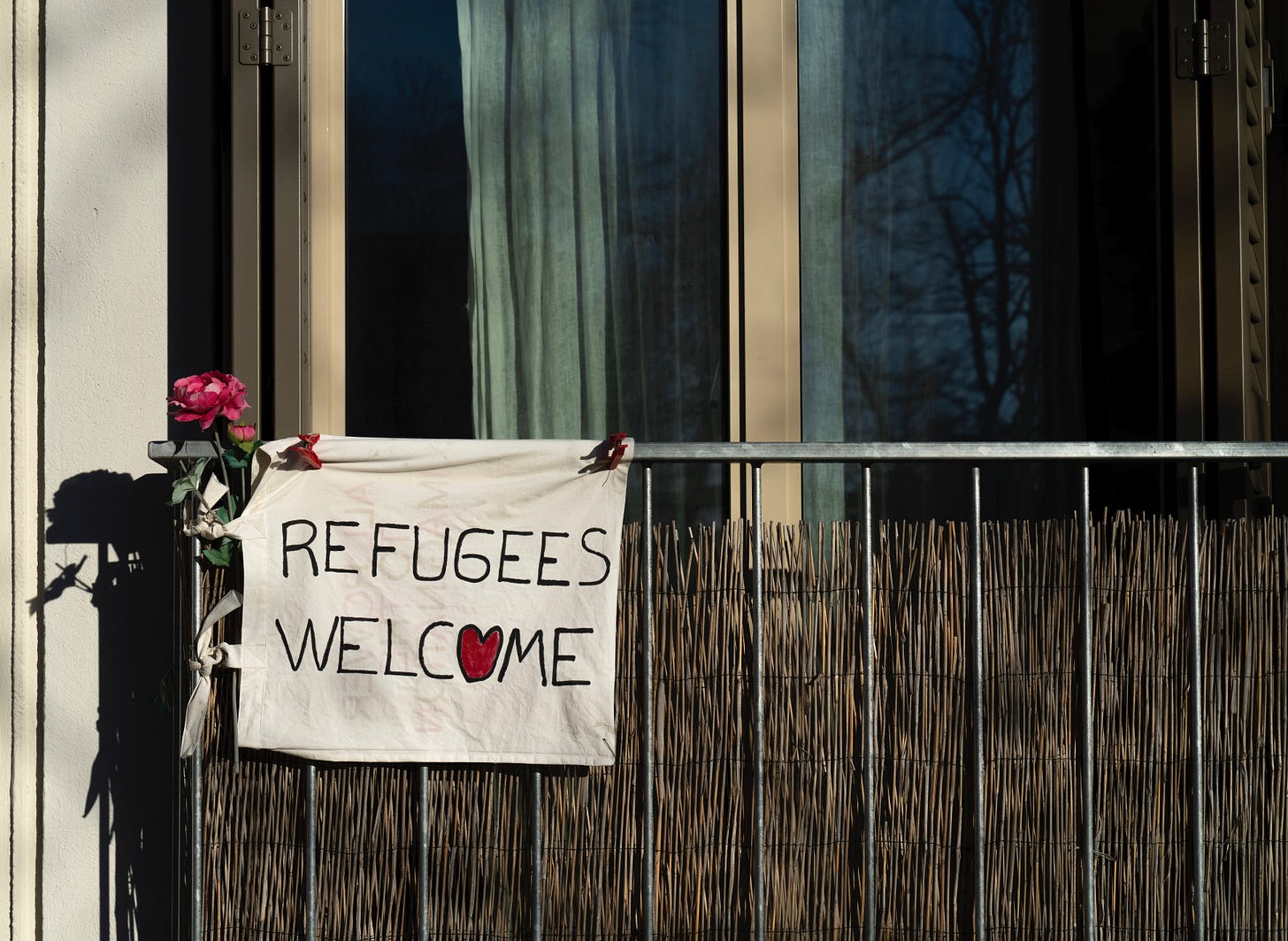Photo by Ricardo Gomez Angel on Unsplash
By Keith A. Owens
(Click the player above to listen to this article.)
(To view previous articles, please visit our website.)
For nearly two weeks now, there has been virtual nonstop ‘round the clock coverage of Russia’s invasion of Ukraine, and justifiably so. Russia is a military superpower run by a brutal and possibly unstable and unbalanced madman, and Ukraine is a sovereign nation that did absolutely nothing to provoke the attack. Putin needs to be stopped, and every nation represented in the United Nations (minus about five Putin like-minded dictators and crazies) is in united agreement that whatever measures that need to be taken must be taken.
Cool.
Because I don’t have any problem with that. I support pushing back against bad guys, especially those who are in charge of entire countries, and Putin is way up there near the top of that list. I also support the global support of Ukrainian refugees that we keep hearing about. Seems like every news story has an update about all the concerned people and churches and organizations and countries that are seemingly trying to outdo each other in showing how much unconditional love and support they are prepared to shower down upon the heads of Ukrainian refugees.
And that’s great. Except…
Wasn’t there a refugee crisis going on prior to the invasion of Ukraine?
I seem to remember quite a few stories about the hundreds - even thousands - of refugees from Southern and Central America risking their lives trying to get to the United States to escape unbelievable brutal conditions in their home countries. Stories that we heard about throughout the term of The Other Guy, and that remained in the headlines after President Biden took office. And then there are the African immigrants, many of whom are also trying to flee war-torn nations and extraordinarily dangerous conditions, who have become a highly visible presence throughout Europe; and who have been the victims of brazenly racist and unwelcoming treatment by many of these same European nations and cities who are now falling all over themselves trying to make room for the Ukrainian refugees.
As a matter of fact, even in Ukraine, there are African students and residents trying to escape the country and seek refuge elsewhere in Europe. Except that, at least according to this story in The New Yorker, it seems the world isn’t extending the same bubbly warm welcome to them, even though their lives are equally in danger. Oh, and then there’s this story from CNN. And here’s another from the Washington Post.
And so one does have to wonder what, exactly, could be the reason for this discrepancy unless it’s…
Well, I’ll be damned. It’s you again, isn’t it? Yep, it’s that same pesky word (racism) that nobody wants to hear right now – or ever. Because it’s always inconvenient. There’s never a really good time for racism, right? Because to say out loud that white European refugees are quite obviously receiving a level of love, compassion, and concern that most darker-skinned refugees could only dream about would result in a tainted national and global narrative and might possibly require a slight shift in focus that would be…yeah…well…inconvenient.
And so we continue to sit and listen as the overwhelming amount of coverage concerning Ukrainian refugees focuses on how bad it is for them and how the world wants to embrace them, even though the world has had little interest in embracing so many others who experienced at least the same amount of hardship, if not worse, for far longer.
According to the United Nations Refugee Agency, also known as the United Nations High Commissioner for Refugees (UNHCR):
Growing numbers of people in Central America are being forced to leave their homes. Worldwide, there are now around 470,000 refugees and asylum-seekers from El Salvador, Guatemala and Honduras – a figure that registered an increase of 33% as compared to 2018. Compounded by socio-economic instability and poverty, they are escaping gang violence, threats, extortion, recruitment into gangs or prostitution, as well as sexual and gender-based violence (SGBV). Lesbian, gay, bisexual, transgender and intersex people – collectively known as LGBTI – are also fleeing persecution. Many more are displaced more than once within their own countries or have been deported back home, often into dangerous situations.
And that’s just in Central America. There’s also what’s going on in the African nation of Ethiopia:
A full-scale humanitarian crisis is unfolding as thousands of refugees flee ongoing fighting in Ethiopia’s Tigray region to seek safety in eastern Sudan. Since the violence began in early-November 2020, refugees have been arriving at remote border points that take hours to reach from the nearest towns in Sudan. Many are women and children. Most left with barely any belongings and arrived exhausted from walking long distances over harsh terrain.
And then there’s Yemen:
After more than six years of conflict, Yemen remains the world’s largest humanitarian crisis and millions of displaced Yemenis are only a step away from famine.
The ongoing conflict has displaced four million Yemenis, devastated the country, and fractured its health services and food supplies, leaving 66 percent of the population dependent on humanitarian aid.
There are worthy (white) refugees, and then there are, well, the rest.











Share this post